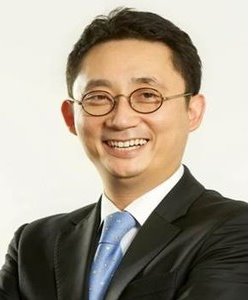Korea is often called “a society of distrust” or “a society of conflicts.” Distrust runs deep in existing systems including the state, media, business, and civic groups. Accordingly, social conflicts occur frequently across the boundaries of political ideologies, regions, and generations. Recent conflicts between physicians and nurses over the legislation of the Nursing Act are part of these social conflicts and distrust.
Since the opening of the 20th National Assembly, lawmakers submitted three bills related to the Nursing Act in 2021. The National Assembly’s Health and Welfare Committee integrated these three bills into one on May 17, 2022, and submitted it to the legislation and judiciary committee. The minutes of the health and welfare committee show that the National Assembly and the government made special efforts for integration and coordination.

When this bill was being made, most of the issues pointed out by healthcare groups – such as the definition and scope of nursing, whether to include caregivers, priority over other laws and provisions related to mandatory employment of nurses – were all deleted or revised. As a result, the bill did not include issues that infringe on the scope of doctors’ work or that change physicians’ work significantly. The major remaining issues are whether it is necessary to make a separate law for nursing and whether a provision is necessary for improving the rights, interests, and welfare of nurses only.
Nevertheless, the fight between doctors and nurses over the bill is getting intense outside the National Assembly. Thirteen health and medical groups including the Korean Medical Association (KMA) are all opposed to the legislation.
KMA, a representative healthcare group in Korea, concluded that this bill could become “an evil law that may disrupt the current healthcare system by causing conflicts between doctors and nurses and confusion in the medical field.”
The group even set up the Emergency Response Committee to declare that it would wage a war against the bill.
Why does this happen? It is because there is a gap between the reality of healthcare and the perception of it. A satire comes to my mind, “A person’s eyes are not on the head that is logically thinking but the toes standing on the ground.” From the point of view of doctors, an independent nursing law can undermine the medical system centered on the responsibility of doctors. Physicians seemed to have judged that even if there is no provision to substantiate this evaluation in the final bill, the legislative form itself as a separate nursing law, could have a symbolic effect.
Healthcare groups opposing the Nursing Act seem to share a stance with physician groups. They said nurses, who account for the largest number of healthcare workers, were pushing for the bill to promote their interests.
However, from the viewpoint of nurses, the current healthcare system centered on physicians is not favorable to nurses and fails to appreciate and evaluate nurses’ contributions properly.
People often say there is no reason and friendship in a fight for a vested interest. Excessive political mobilization based on mutual distrust and speculation tends to block out alternatives to solve problems. Realistically, as long as the bill is ready, I hope that there will be enough discussion in the public forum about how to improve the rights and interests of healthcare professionals including nurses, and encourage productive collaboration. If we discuss this matter sufficiently putting public health at the center, we will find a solution that improves healthcare quality.

